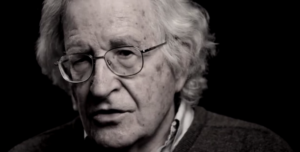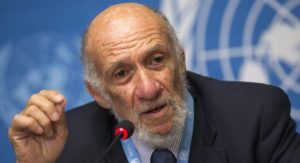‘The Penguins are coming!’
 Volgens de gangbare legende ontstond het idee voor de bekende Penguin pockets bij de stationskiosk op het station van Exeter, in zuidwest Engeland. Allen Lane, redacteur bij de vermaarde uitgeverij The Bodley Head, wilde daar op een avond in 1935 de trein naar Londen nemen, na een logeerweekend in Devon te hebben doorgebracht bij detectiveschrijfster Agatha Christie en haar man, de archeoloog Max Mallowan. Hij verbaasde hij zich erover dat in de stationskiosk geen goedkope goede boeken te koop waren, in een voor een reiziger handzaam formaat, makkelijk mee te nemen dus, in de jaszak of reistas. Hij verwonderde zich ook over de abominabele inhoud van de aangeboden titels en de oppervlakkigheid van de genres in het assortiment. Ter plekke moet Lane bedacht hebben dat de markt rijp was voor het uitgeven van een serie voor iedereen betaalbare boeken in een handig formaat, die zich qua inhoud konden meten met de uitgaven van gevestigde Britse uitgeverijen. Literatuur, biografieën, poëzie, wetenschap en kunst, niet duurder dan de aanschaf van een pakje sigaretten.
Volgens de gangbare legende ontstond het idee voor de bekende Penguin pockets bij de stationskiosk op het station van Exeter, in zuidwest Engeland. Allen Lane, redacteur bij de vermaarde uitgeverij The Bodley Head, wilde daar op een avond in 1935 de trein naar Londen nemen, na een logeerweekend in Devon te hebben doorgebracht bij detectiveschrijfster Agatha Christie en haar man, de archeoloog Max Mallowan. Hij verbaasde hij zich erover dat in de stationskiosk geen goedkope goede boeken te koop waren, in een voor een reiziger handzaam formaat, makkelijk mee te nemen dus, in de jaszak of reistas. Hij verwonderde zich ook over de abominabele inhoud van de aangeboden titels en de oppervlakkigheid van de genres in het assortiment. Ter plekke moet Lane bedacht hebben dat de markt rijp was voor het uitgeven van een serie voor iedereen betaalbare boeken in een handig formaat, die zich qua inhoud konden meten met de uitgaven van gevestigde Britse uitgeverijen. Literatuur, biografieën, poëzie, wetenschap en kunst, niet duurder dan de aanschaf van een pakje sigaretten.
 Uitgevers
Uitgevers
Datzelfde jaar nog verschenen de eerste tien Penguin pockets. Het waren herdrukken, gedeeltelijk afkomstig uit het fonds van The Bodley Head. De overige titels waren met enige moeite betrokken van andere uitgeverijen. Zes romans, een autobiografie, een biografie en twee crimenovels vormden de eerste tien. De uitgaven waren voor Lane een groot risico.
Mogelijk waren boekhandelaren immers niet geïnteresseerd in de uitgaven. En wat als uitgevers niet bereid waren titels uit hun fonds te leveren voor de Penguins? Boekhandelaren stonden dan ook in eerste instantie terughoudend of zelfs afwijzend tegenover de Penguins – de pockets zouden de verkoop van duurdere gebonden boeken in de weg staan – maar nadat warenhuisketen Woolworth in één keer een order van 63.500 exemplaren had geplaatst, was het succes voor Lane verzekerd. Hij nam ontslag bij The Bodley Head en vestigde Penguin als zelfstandige uitgeverij.
Penguins waren overigens niet de eerste pockets op de boekenmarkt. De Duitse uitgeverij Albatross bracht al jaren pockets op de markt, maar niet gericht op het grote publiek. Lane nam niet alleen het concept gedeeltelijk over, voor de naam van zijn uitgeverij koos hij gewoon een andere vogel. Read more
Bruce Springsteen – Chimes Of Freedom (East Berlin 1988)
July 1988. One year before the fall of the Berlin wall, between 200.000 and 300.000 east-berliners witnessed this historical concert. In his speech, they recommended him not to say the word “wall” so he changed it for “barriers”. Epic historical moment.
GERMAN: Es ist schön in Ost-Berlin zu sein. Ich möchte euch sagen ich bin nicht hier für oder gegen eine Regierung, ich bin gekommen um rock’n’roll zu spielen für Ost-Berlinern, in der Hofnung dass eines Tages alle Barrieren obgeriesen warden.
ENGLISH: It’s nice to be in East Berlin. I want to tell you that I’m not here for or against any government, I have come to play rock’n’roll for the East-Berliners, in the hope that one day all barriers will be torn down.
Nationalizing Fossil Fuel Industry Is A Practical Solution To Rising Inflation
Since mid-2020, inflation has been rising, with the level of average prices going up at a faster rate than it has since the early 1980s.
In January 2022, prices had increased by 7.5 percent compared to prices in January 2021, and it now looks like the U.S. may be stuck with higher inflation in 2022 and even beyond.
Why are prices rising so dramatically? Are we heading toward double-digit inflation? Can anything be done to curb inflation? How does inflation impact growth and unemployment? Renowned progressive economist Robert Pollin provides comprehensive responses to these questions in the exclusive interview for Truthout that follows. Pollin is distinguished professor of economics and co-director of the Political Economy Research Institute at the University of Massachusetts at Amherst.
C.J. Polychroniou: Back in the 1970s, inflation was the word that was on everybody’s lips. It was the longest stretch of inflation that the United States had experienced and seems to have been caused by a surge in oil prices. Since then, we’ve had a couple of other brief inflationary episodes, one in the late 1980s and another one in mid-2008, both of which were also caused by skyrocketing gas prices. Inflation returned with a vengeance in 2021, causing a lot of anxiety, and it’s quite possible that we could be stuck with it throughout 2022. What’s causing this inflation surge, and how likely is it that we could see a return to 1970s levels of inflation?
Robert Pollin: For the 12-month period ending this past January, inflation in the U.S economy was at 7.5 percent. This is the highest U.S. rate since 1981, when inflation was at 10.3 percent. Over the 30-year period from 1991 to 2020, U.S. inflation averaged 2.2 percent. The inflation rate for 2020 itself was 1.2 percent. Obviously, some new forces have come into play over the past year as the U.S. economy has been emerging out of the COVID-induced recession.
To understand these new forces, let’s first be clear on what exactly we mean by the term “inflation.” The 7.5 percent increase in inflation is measuring the average rise in prices for a broad basket of goods and services that a typical household will purchase over the course of a year. At least in principle, this includes everything — food, rent, medical expenses, child care, auto purchases and upkeep, gasoline, home heating fuel, phone services, internet connections and Netflix subscriptions.
In fact, prices for the individual items within this overall basket of goods and services have not all been rising at this average 7.5 percent rate. Rather, the 7.5 percent average figure includes big differences in price movements among individual components in the overall basket.
The biggest single factor driving up overall inflation rate is energy prices. Energy prices rose by 27 percent over the past year, and within the overall energy category, gasoline rose by 40 percent and heating oil by 46 percent. This spike in gasoline and heating oil prices, in turn, has fed into the total operating costs faced by nearly all businesses, since these businesses need gasoline and heating oil to function. Businesses therefore try to cover their increased gasoline and heating oil costs by raising their prices.
The second big factor is automobile prices, used cars in particular. The average price of used cars rose by 41 percent over the past year. High auto prices do also feed into the costs of other businesses, though not to as large an extent as energy costs.
The third big factor has been wage increases. Average wages rose by 4.0 percent over the past year. Here again, businesses will try to cover these increased wage costs through passing the costs onto consumers through higher prices. That said, we need to be clear on some details about the wage increases. First of all, for the average workers, their 4.0 percent wage increase is 3.5 percent below the 7.5 percent increase in prices for the average consumer basket. This tells us that, due to the 7.5 percent inflation rate, the workers’ 4.0 percent wage increase ends up amounting to a 3.5 percent pay cut after we take account of what the workers can buy with their wages.
Second, not all workers have gotten this average 4.0 percent wage increase. Some have gotten more and others got less. In fact, some of the largest wage increases went to workers employed in hotels and restaurants (8.4 percent raises) and in nursing home facilities (6 percent raises). These workers were hard-hit by the COVID pandemic and recession, through the dangerous conditions in nursing homes and the full-scale lockdowns of restaurants and hotels. Finance industry employees also got big raises, at 8.1 percent, though in this case, hardly to compensate for hardships over the previous year. These raises rather reflect the dizzying rise of the U.S. stock market during COVID and after, all fueled by the Federal Reserve’s $4 trillion bailout of Wall Street over the crisis.
What then are the key specifics underlying the overall inflation rise?
Let’s consider car prices, energy prices and wages in turn:
Cars: What is pushing up these prices is the widely discussed breakdown in global supply chains, and in particular, the sharp fall in the supply of computer chips that are needed for manufacturing new cars. The supply chain breakdown is far more widespread than just the computer chip industry. But auto manufacturing is where the impact on overall inflation has been most acute to date. This is because the demand for used car purchases spiked when the supply of new cars coming off of global assembly lines contracted.
Chomsky: US Push To “Reign Supreme” Stokes The Ukraine Conflict
Irrational political panic is as American a phenomenon as apple pie. It often arises as a result of a potential inability on the part of the powers-that-be to control the outcome of developments that may pose challenges to the interests of the existing socioeconomic order or to the status quo of the geostrategic environment. The era of the Cold War speaks volumes about this phenomenon, but it’s also evident in earlier periods — for example, the first Red Scare in the wake of World War I — and we can see clear parallels in the present-day situation with reactions to Ukraine and the rise of China as a global power.
In the interview that follows, world-renowned public intellectual Noam Chomsky delves into the phenomenon of irrational political panics in the U.S., with an emphasis on current developments on the foreign policy front — and the dangers of seeking to maintain global hegemony in a multipolar world.
C.J. Polychroniou: The political culture in the United States seems to have a propensity toward alarmism when it comes to political developments that are not in tune with the economic interests, ideological mindset and strategic interests of the powers-that-be. Indeed, from the anti-Spanish panic of the late 1890s to today’s rage about Russia’s security concerns over Ukraine, and China’s growing role in world affairs and everything in between, the political establishment and the media of this country tend to respond with full-blown alarm to developments that are not in alignment with U.S. interests, values and goals. Can you comment about this peculiar state of affairs, with particular emphasis on what’s happening today in connection with Ukraine and China?
Noam Chomsky: Quite true. Sometimes it’s hard to believe. One of the most significant and revealing examples is the rhetorical framework of the major internal planning document of the early Cold War years, NSC-68 of 1950, shortly after “the loss of China,” which set off a frenzy in the U.S. The document set the stage for huge expansion of the military budget. It’s worth recalling today when strains of this madness are reverberating — not for the first time; it’s perennial.
The policy recommendations of NSC-68 have been widely discussed in scholarship, though avoiding the hysterical rhetoric. It reads like a fairytale: ultimate evil confronted by absolute purity and noble idealism. On one side is the “slave state” with its “fundamental design” and inherent “compulsion” to gain “absolute authority over the rest of the world,” destroying all governments and the “structure of society” everywhere. Its ultimate evil contrasts with our sheer perfection. The “fundamental purpose” of the United States is to assure “the dignity and worth of the individual” everywhere. Its leaders are animated by “generous and constructive impulses, and the absence of covetousness in our international relations,” which is particularly evident in the traditional domains of U.S. influence, the Western hemisphere, long the beneficiary of Washington’s tender solicitude as its inhabitants can testify.
Anyone familiar with history and the actual balance of global power at the time would have reacted to this performance with utter bewilderment. Its State Department authors couldn’t have believed what they were writing. Some later gave an indication of what they were up to. Secretary of State Dean Acheson explained in his memoirs that in order to ram through the huge planned military expansion, it was necessary to “bludgeon the mass mind of ‘top government’” in ways that were “clearer than truth.” The highly influential Sen. Arthur Vandenberg surely understood this as well when advising [in 1947] that the government must “scare the hell out of the American people” to rouse them from their pacifist backwardness.
There are many precedents, and the drums are beating right now with warnings about American complacency and naivete about the intentions of the “mad dog” Putin to destroy democracy everywhere and subdue the world to his will, now in alliance with the other “Great Satan,” Xi Jinping.
The February 4 Putin-Xi summit, timed with the opening of the Olympic games, was recognized to be a major event in world affairs. Its review in a major article in The New York Times is headlined “A New Axis,” the allusion unconcealed. The review reported the intentions of the reincarnation of the Axis powers: “The message that China and Russia have sent to other countries is clear,” David Leonhardt writes. “They will not pressure other governments to respect human rights or hold elections.” And to Washington’s dismay, the Axis is attracting two countries from “the American camp,” Egypt and Saudi Arabia, stellar examples of how the U.S. respects human rights and elections in its camp — by providing a massive flow of weapons to these brutal dictatorships and directly participating in their crimes. The New Axis also maintains that “a powerful country should be able to impose its will within its declared sphere of influence. The country should even be able to topple a weaker nearby government without the world interfering” — an idea that the U.S. has always abhorred, as the historical record reveals.
Twenty-five hundred years ago, the Delphi Oracle issued a maxim: “Know Thyself.” Worth remembering, perhaps.
“Politics as Usual” Will Never Be A Solution To The Current Climate Threat
There is an ever-growing consensus that the climate crisis represents humanity’s greatest problem. Indeed, global warming is more than an environmental crisis — there are social, political, ethical and economic dimensions to it. Even the role of science should be exposed to critical inquiry when discussing the dimensions of the climate crisis, considering that technology bears such responsibility for bringing us to the brink of global disaster. This is the theme of my interview with renowned scholar Richard Falk.
For decades, Richard Falk has made immense contributions in the areas of international affairs and international law from what may be loosely defined as the humanist perspective, which makes a break with political realism and its emphasis on the nation-state and military power. He is professor emeritus of international law and practice at Princeton University, where he taught for nearly half a century, and currently chair of Global Law at Queen Mary University London, which has launched a new center for climate crime and justice; Falk is also the Olaf Palme Visiting Professor in Stockholm and Visiting Distinguished Professor at the Mediterranean Academy of Diplomatic Studies, University of Malta. In 2008, Falk was appointed as a United Nations Special Rapporteur on the situation of human rights in the Palestinian territories occupied since 1967. He is the author of some 50 books, the most recent of which is a moving memoir, titled Public Intellectual: The Life of a Citizen Pilgrim (2021).
C.J. Polychroniou: The climate crisis is the greatest challenge of our time, but, so far, we seem to be losing the battle to avoid driving the planet to dangerous “tipping points.” Indeed, a climate apocalypse appears to be a rather distinct possibility given the current levels of climate inaction. Having said that, it is quite obvious that the climate crisis has more than one dimension. It is surely about the environment, but it is also about science, ethics, politics and economics. Let’s start with the relationship between science and the environment. Does science bear responsibility for global warming and the ensuing environmental breakdown, given the role that technologies have played in the modern age?
Richard Falk: I think science bears some responsibility for adopting the outlook that freedom of scientific inquiry takes precedence over considering the real-world consequences of scientific knowledge — the exemplary case being the process by which science and scientists contributed to the making of the nuclear bomb. In this instance, some of the most ethically inclined scientists and knowledge workers, above all, Albert Einstein, were contributors who later regretted their role. And, of course, the continuous post-Hiroshima developments of weaponry of mass destruction have enlisted leading biologists, chemists and physicists in their professional roles to produce ever more deadly weaponry, and there has been little scientific pushback.
With respect to the environmental breakdown that is highlighted by your question, the situation is more obscure. There were scientific warnings about a variety of potential catastrophic threats to ecological balance that go back to the early 1970s. These warnings were contested by reputable scientists until the end of the 20th century, but if the precautionary principle included in the Stockholm Declaration on the Human Environment (1972) would have been implemented, then certainly scientists bore some responsibility for continuing to work toward more capital-efficient means of finding technological applications for oil, gas and coal. As with adverse health effects, post-Enlightenment beliefs that human progress depended on scientific knowledge inhibited regulation for the benefit of the public good. Only when civil society began to sound the alarm were certain adjustments made, although often insufficient in substance, deferring to private interests in profitability, and public interests in the enhancement of military capabilities and governmental control.
Overall, despite the climate change crisis, there remains a reluctance to hamper scientific “progress” by an insistence on respecting the carrying capacity of the Earth. Also, science and scientists have yet to relate the search for knowledge to the avoidance of ecologically dangerous technological applications, and even more so in relation to political and cultural activities. There is also the representational issue involving the selection of environmental guardians and their discretionary authority, if a more prudential approach were to be adopted.
The climate crisis also raises important ethical questions, although it is not clear from current efforts to tame global warming that many of the world’s governments take them seriously. Be that as it may, how should ethics inform the debate about global warming and environmental breakdown?
The most obvious ethical issues arise when deciding how to spread the economic burdens of regulating greenhouse gas emissions in ways that ensure an equitable distribution of costs within and among countries. The relevance of “climate justice” to relations among social classes and between rich and poor countries is contested and controversial. As the world continues to be organized along state-centric axes of authority and responsibility, ethical metrics are so delimited. Given the global nature of the challenges associated with global warming, this way of calculating climate justice and ethical accountability in political space is significantly dysfunctional.
Similar observations are relevant with respect to time. Although the idea of “responsibility to future generations” received some recognition at the UN, nothing tangible by way of implementation was done. Political elites, without exception, were fixed on short-term performance criteria, whether satisfying corporate shareholders or the voting public. The tyranny of the present in policy domains worked against implementing the laudatory ethical recognition of the claims of [future generations] to a healthy and materially sufficient future.
Taking account of the relevance of the past seems an ethical imperative that is neglected because it is seen as unfairly burdening the present for past injustices. For instance, reparations claims on behalf of victimized people, whether descendants of slavery or otherwise exploited peoples, rarely are satisfied, however ethically meritorious. There is one revealing exception: reparations imposed by the victorious powers in a war.
In the environmental domain, the past is very important to the allocation of responsibility for the atmospheric buildup of greenhouse gas emissions. Most Western countries are more responsible for global warming than the vast majority of the Global South, and many parts of Africa and the Middle East face the dual facts of minimal responsibility for global warming yet maximal vulnerability to its harmful effects.
These various ethical concerns are being forced onto the agendas of global conferences. This was evident at the 2021 COP-26 Glasgow Climate Summit under UN auspices. The intergovernmental response was disappointing, and reflected capitalist and geopolitical disregard of the ethical dimensions of the climate change challenge.
Israeli Policies Satisfy The Definition Of Apartheid Under International Law
A furor has enveloped Washington, D.C. as Democrats and Republicans alike scramble to denounce Amnesty International for the report it released this month, which describes Israel as an “apartheid state” and alleges that the human rights abuses committed against Palestinians by the State of Israel constitute crimes against humanity under international law.
In many respects, there is nothing new in the report, as many other human rights organizations, including the UN, have long ago drawn the same conclusions. In fact, many Israelis themselves agree with the assessment of Israel as an apartheid state. Even the late Israeli politician Yossi Sarid, who served as minister of education and the environment back in the late 1990s and through the early 2000s, said the following in 2008 for the Israeli newspaper Haaretz: “What acts like apartheid, is run like apartheid and harasses like apartheid, is not a duck — it is apartheid.”
Even so, the report provoked an explosion of rage in the United States — most likely among the same group of people who used to object to critiques of South Africa’s system of apartheid and who viewed Nelson Mandela as a terrorist. The same frenzy of rage also surfaced in the U.S. back in 2017, when Richard Falk, the UN Special Rapporteur on the situation of human rights in the Palestinian occupied territories, produced a United Nations report charging Israel with crimes against humanity and labelling it an apartheid state.
In light of Amnesty International’s new report, we asked Richard Falk to share his thoughts on the latest findings about Israeli apartheid and crimes against humanity. Falk is professor emeritus of international law and practice at Princeton University, where he taught for nearly half a century, and chair of Global Law at Queen Mary University London, which has launched a new center for climate crime and justice. He is also the Olaf Palme Visiting Professor in Stockholm and Visiting Distinguished Professor at the Mediterranean Academy of Diplomatic Studies, University of Malta. In 2008, Falk was appointed as a United Nations Special Rapporteur on the situation of human rights in the Palestinian territories occupied since 1967. He is the author of some 50 books, the most recent of which is a memoir titled Public Intellectual: The Life of a Citizen Pilgrim (2021).
C.J. Polychroniou: Amnesty International’s new report exposes Israeli abuses against Palestinians. The report shows that Israel imposes a form of domination and oppression against Palestinians under its control that qualifies as a system of apartheid under international law. In this context, it affirms the 2017 United Nations report that you had helped produce and for which you were personally attacked by Nikki Haley at the Security Council. But Israel is arguing that the report is full of lies, and some of its strongest allies (the U.S., the U.K. and Germany) are rejecting the description of Israel as an apartheid state. Let’s start with the most basic question of all: Is there anything in the report that is not true? If not, why has it caused such a bipartisan fury in the U.S.?
Richard Falk: I think it is important to assess the Amnesty International report in the wider context of the perception of Israeli apartheid over the course of the last five years, since the issuance of the United Nations Economic and Social Commission for Western Asia’s (ESCWA) “Report on Israeli Practices Towards the Palestinian People and the Question of Apartheid” in 2017.
In 2021, two comprehensive reports by widely respected human rights organizations added weight to the apartheid allegations. The first one — titled “A Regime of Jewish Supremacy from the Jordan River to the Mediterranean Sea: This is Apartheid” — was published in 2021 by the most established and internationally trusted Israeli NGO devoted to the protection of human rights, B’Tselem. It has developed an outstanding reputation for professionalism over the years. The second report — titled “A Threshold Crossed: Israeli Authorities and the Crimes of Apartheid and Persecution” — was issued in April 2021 by Human Rights Watch, the flagship human rights civil society organization in the United States with offices around the world.
The Amnesty International report released this February — titled “Israel’s Apartheid Against the Palestinians: Cruel System of Domination and Crime Against Humanity” — should be seen as the culmination of a trend validating allegations of Israeli apartheid, at least within international civil society.
To dismiss and denigrate these reports adhering to the highest human rights research standards — as Israeli and American leaders and spokespersons have attempted to do, calling the Amnesty International report full of “lies” and the work of “anti-Semites” — is a shameless slander. Such inflammatory language is designed to shift the conversation from the message to the messenger. This interpretation of the tactics of those rejecting the Amnesty International report is strengthened by the absence of any serious effort to refute the substantive charges. So far there has been a bipartisan angry rejection of the Amnesty International report in Congress, and virtual silence in the mainstream TV and print media. How different would be the U.S. reaction to an Amnesty report summarizing the breakup of Hong Kong demonstrations or damning the Chinese denial of human rights to the Uyghur minority. The inevitable conclusion reached is that international law and human rights function for the U.S. government as geopolitical tools rather than normative principles.





